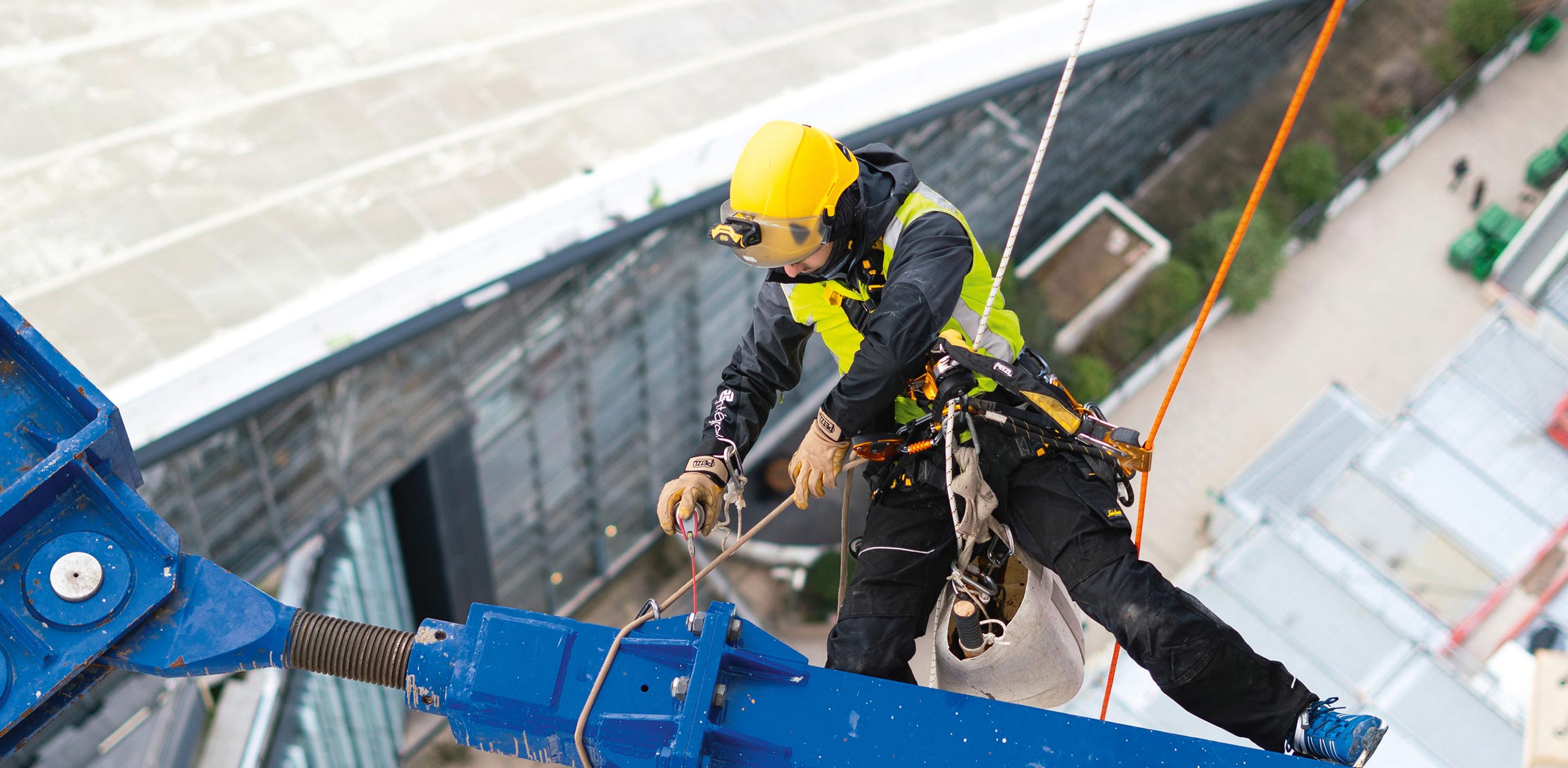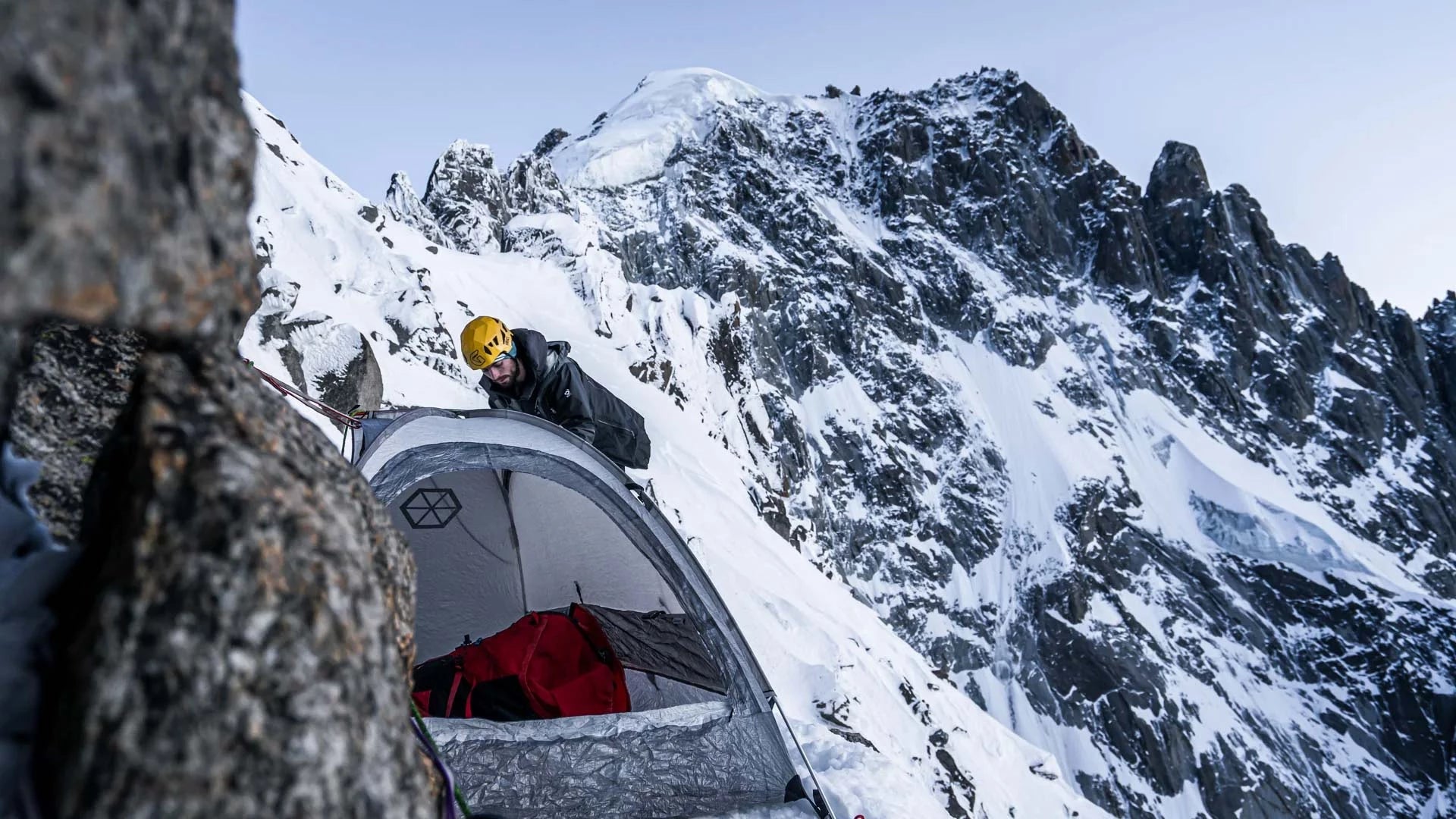Photo Essay
Eric Carter (Alpine Athlete)
Our Home
Our “home hill” in Squamish is the Sky Pilot group. It's a tiny group of relatively small mountains, but, the terrain that's packed in there, combined with the easy access, is incredible. Because the rock in the area is a mix of granite and metamorphic rock that's much younger, it has a different characteristic than much of the Sea to Sky - steep featured walls with beautiful couloirs and gullies splitting them up. This is a mini skier's paradise in the winter as it gets so much snowfall. You can practice real ski alpinism (on a small scale) then bump over and ski amazing old-growth tree pow. In the summer, it's possible to run, scramble, and rock climb all over the massif when the snow melts as the rock is just good enough to actually play on. And, the new rock route potential is pretty much endless. In the shoulder season, lighter snowfall and alpine ice make for really interesting and forgiving mixed climbing conditions if you time it right with the storm cycles. The best part about the area is that most people stick to the classic routes and as soon as you get off the beaten path, you'll likely find that 1) it goes, and 2) you've got it to yourself! For me, this range offers a spectacular training zone where I can practice my craft while staying close to home and still make a progression as an athlete!


Away From Home
A little further afield, just north of Whistler, is the Wedgemount group of peaks. These are a step-up in size and seriousness. The mountains form a ring on the edge of Garibaldi park and host several extensive glaciers. Wedgemount Lake gets lots of attention from hikers willing to do the vertical kilometre to get there and the classic mountaineering route the NE Arête of Wedge Peak is often quite busy (for good reason). In the summer, several climbs and scrambles exist including the increasingly popular Armchair Traverse from Mt. Cook to Mt. Weart. This is a step up in seriousness for summer scrambling and often requires a bit of rope and crampon work. Less well known however, is the rock climbing in the area with several routes on prominent features of Mt. Rethel. A bit further away on the north side of Weart is an unclimbed buttress deemed the “Walker Spur of Whistler” by a famous guidebook writer. In winter, the area gets much less use (mostly due to the long approach from the valley bottom) but deserves much more. Steep technical ski lines abound and multi-day opportunities in the peaks behind the Weart Glacier are pretty endless. Similar to the Sky Pilot area, before winter snow blankets everything and morphs it into ski season, cold temps in the fall make for outstanding mixed climbing, especially on the north face of Rethel, but also in the major couloirs of Parkhurst and Wedge. Most major features are rarely climbed making any objective feel pretty adventurous, but make sure to nail those fickle, fall, coastal, climbing conditions!


Road Trips
The third mountain range of my dreams is Roger's Pass, specifically the Asulkan group of mountains. The Pass is referred to almost reverently by skiers but it's more committing for us to make a trip from the Coast than for those living in Revelstoke or Golden. I first explored these peaks on skis but was really drawn in by the potential for summer scrambling. After standing on the summit of Sir Donald and seeing the beautiful ring of peaks that surround Asulkan Creek, I knew I wanted to traverse the entire group. The Roger's Pass Horseshoe is traditionally done in 3-5 days, my partner Leif and I figured we could do it in about 24 hours. We set out before dawn on a scrambling odyssey that took us through sunrise, sunset, and another sunrise. Ultimately, it was the most thinking about, looking at, and touching of rock that I've ever done in a single day. The blocky climbing on faces and knife-edge ridges make the moves easy but the exposure is spectacular. There are dream lines for every season and every ability in the pass that rival Chamonix, or anywhere in the Alps, with consistent snowfall in the winter!

Each of these areas has contributed to my progression as an alpine athlete. I've honed technical skills, fitness, and learned mountain sense that I can translate to areas anywhere in the world while still chasing new lines and linkups in places so close to home.
📷 Credit: Photos Courtesy of Chris Christie and Eric Carter












Leave a comment